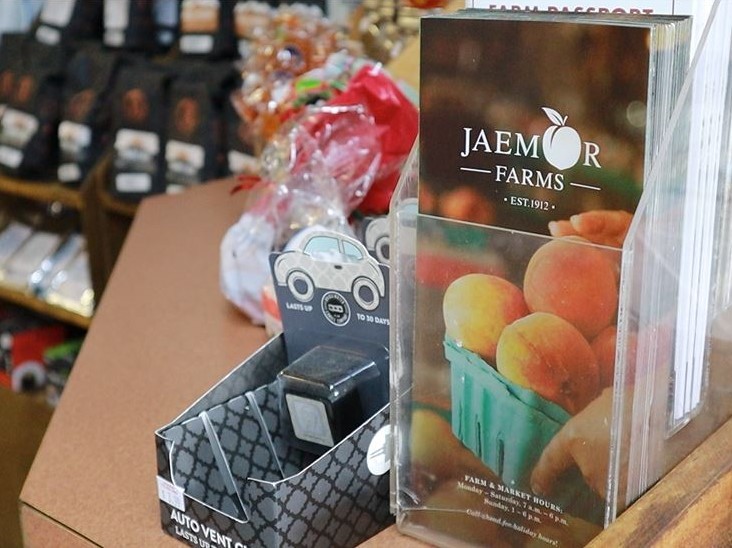Mild temperatures at the beginning of the year followed by unusual lows in March sparked concern across the southeast for peach lovers and growers; however, officials at Jaemor Farms in Alto believe its shelves will be stocked with big, juicy fruits all summer long.
“It is very much a glass half full type situation,” General Manager Drew Echols with Jaemor Farms said. “It’s by no means the best crop of peaches we’ve ever had, or the largest, but it’s not the worst either.”
This past winter was mild for the state of Georgia. Weather data for North Georgia showed temperatures about 6 degrees higher than what was considered normal, a trend which continued off and on until the end of March, according to the National Weather Service.
“At the end of March, we had a few cold days that were pretty detrimental to peach crops all over the southeastern United States and in particular here at our farm,” Echols said. "We had kind of made it through – there were several cold days, maybe two weeks prior crops still looked great,” he said.
In an effort to protect its peach crops from those unusual, frigid lows, Jaemor flew a helicopter over its farm and placed wind machines along the property to help circulate warmer air downward and toward its crops. Unfortunately, those lower temperatures dropped nearly 20 degrees from the normal range and the farm suffered, Echols said.
“Right now, we are looking at tree counts and we’re looking at how many peaches are on each tree,” he said. “In some places there are 20 to 30 percent of a crop and in other places there are 70 to 80 percent of a crop, so we’re still assessing that.”
According to Echols, Crops were already past full bloom when the second cold snap happened; however, peach trees typically bloom about ten times more blooms than what is needed to produce the best harvest. Regardless of the weather, trees would have had to been thinned to benefit the overall tree health because trees produce x amount of nutrients through its roots system, so there must be an x number of fruits for the best product possible, he said.
“Our experience here has been that natural thinning is always the best thing – it’s Mother Nature,” Echols said. “God, he knows how to do it a whole lot better than we do, so I feel like in most areas where we have peaches, they’re going to be really nice size and that’s what the customers want.”
Although the farm was not certain of the impact it will face come harvest time, its early assessment predicted about 50% of its crops would be affected by the early weather of 2023. While that number seemed high, there is no need to worry, Echols said.
“Don’t panic because for us now, we’ve got 150 acres of peaches,” he said. “A 50% crop enables us to keep peaches on our shelves here at the market all summer long, but what it does mean is that we’re not going to be shipping peaches out. Our wholesale account will be pretty light [or] nonexistent this year.”
A hit to its wholesale market will inevitably impact Jaemor’s revenue, as peaches are the farm’s specialty and what it grows and sells the most. The farm may also have to cut back on its "U-Pick Peach Days" in order to keep its markets in Alto and Commerce stocked with peaches this summer, Echols said.
"Instead of having three or four U-Pick weekends for customers, we may only have one," he said. "But we are going to have peaches and that's kind of the take home."
This season’s misfortunes will also affect pockets of farmers throughout Georgia; however, state officials have already stepped in to advocate for peach growers throughout the peach state, according to Georgia Agriculture Commissioner Tyler Harper.
“We have begun discussions with the [United States Department of Agriculture] regarding potential disaster relief funds for peach producers,” he said. “[And we] are traveling to Washington D.C. later this month to continue these conversations with our Georgia delegation and congressional leaders.”
Since the mid-March freeze, Harper has maintained constant communication with Georgia peach producers, the Georgia Fruit and Vegetable Growers Association and the University of Georgia Extension office to better assess the extent of damage to this year’s crops. He visited Lane Southern Orchard in Fort Valley, which is the largest peach operation in the United States, according to Peach County online, to look at the damage in-person and to help determine the state’s next course of action, he said.
“While the freeze caused significant damage to the early-season crop, we remain hopeful that a strong late-season crop will put high-quality Georgia peaches on grocery store shelves across the country,” Harper said.









